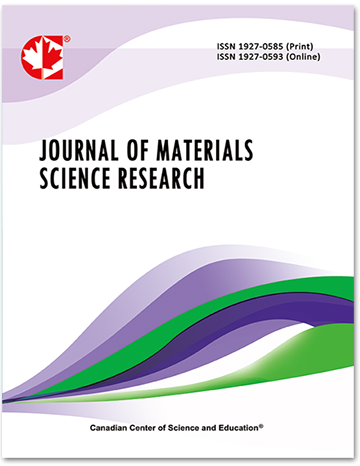Synthesis of Ag-NiO Nanocomposite Using Persea Americana Peel Extract and Evaluation of Its Antibacterial and Antioxidant Capacity
- Tahir Hamza Endres
- Gamada Begna Sisay
Abstract
Canola meal as a by-product from the vegetable oil production provides a protein-rich material which is available in large quantities but with limited areas for application. The objective of this study was to investigate the possibility of utilizing canola meal adhesive for the production of wood fiber insulation boards (WFI) using the hot-air/hot-steam-process. WFI with two different thicknesses (40/60 mm) and different densities (110/140/160/180 kg/m³) were manufactured. The testing focused on their physical-mechanical properties such as internal bond strength (IB), compressive strength (CS) and short-term water absorption (ST-WA) measured according to European standards. For a better understanding of the material and curing dynamics, the canola meal was analyzed on its protein content, lignin and pentosane content as well as its extractives content using hot water, cold water and successive extraction. Using a canola meal based adhesive resulted in promising results for IB and CS up to density of 140 kg/m³. Nonetheless, there is place for improvement for the ST-WA.
- Full Text:
 PDF
PDF
- DOI:10.5539/jmsr.v13n2p15
Journal Metrics
Impact Factor 2022 (by WJCI): 0.583
Google-based Impact Factor (2021): 0.52
h-index (December 2021): 22
i10-index (December 2021): 74
h5-index (December 2021): N/A
h5-median (December 2021): N/A
Index
- CAS (American Chemical Society)
- CNKI Scholar
- Elektronische Zeitschriftenbibliothek (EZB)
- EuroPub Database
- Excellence in Research for Australia (ERA)
- Google Scholar
- Infotrieve
- JournalTOCs
- LOCKSS
- NewJour
- PKP Open Archives Harvester
- Qualis/CAPES
- SHERPA/RoMEO
- Standard Periodical Directory
- Universe Digital Library
- WJCI Report
- WorldCat
Contact
- John MartinEditorial Assistant
- jmsr@ccsenet.org
